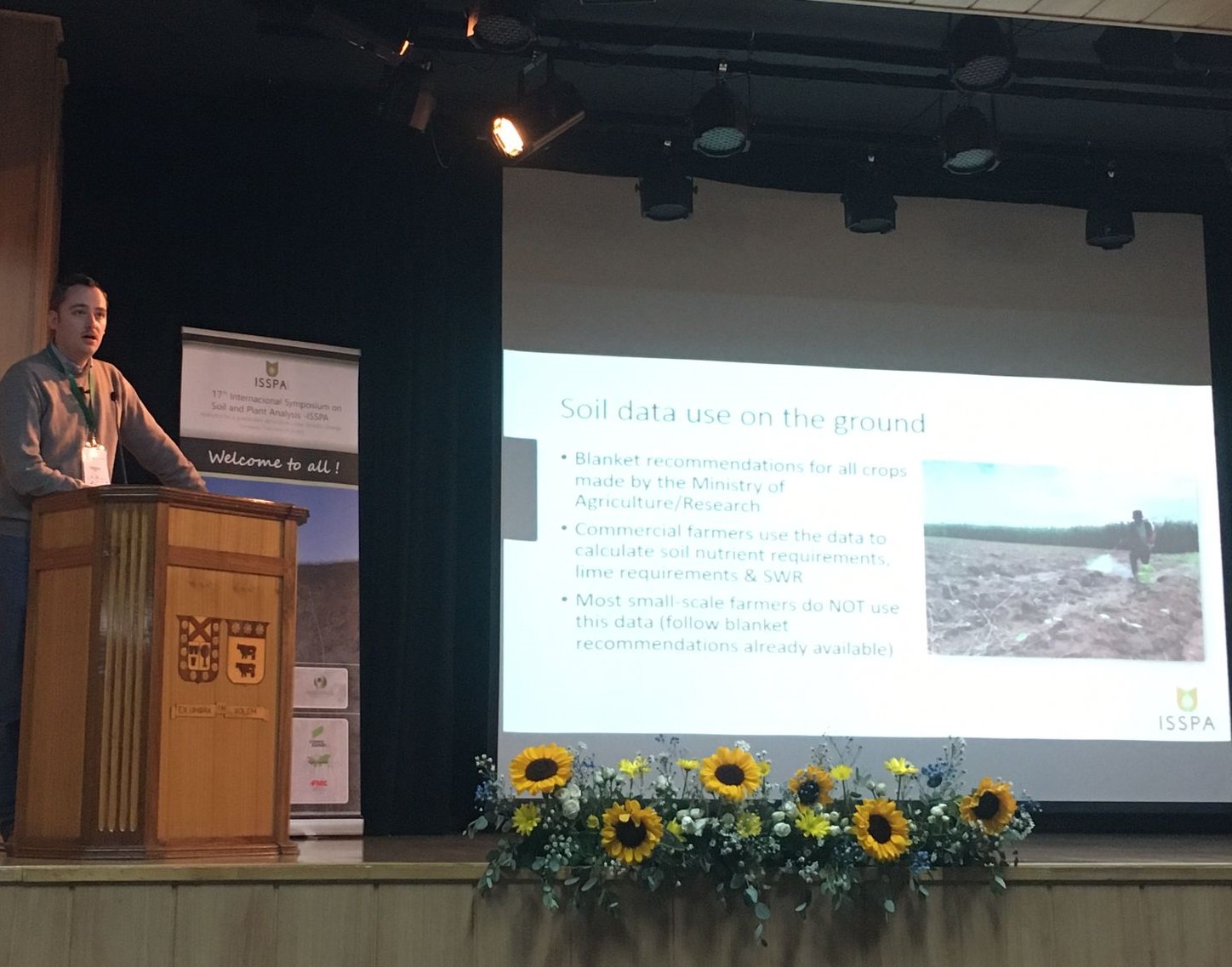GLOSOLAN's at the core of the 17th International Symposium on Soil and Plant Analysis in Chile
Representatives of the Global Soil Laboratory Network (GLOSOLAN) were invited to the 17th International Symposium on Soil and Plant Analysis (ISSPA) to present and share with the international scientific community the main achievements of the network over recent years, as well as to highlight the main needs of soil laboratories worldwide.

ISSPA is a biennial global symposium for scientists, soil laboratories, government agencies, and other professionals to discuss scientific and technological advances in the analysis of soil and plant. The event is organized by the ISSPA International Governance Council (IGC) which is composed by members of the Soil and Plant Analysis Council (SPAC), the Australasian Soil and Plant Analysis Council (ASPAC), the Agri-Laboratory Association of Southern Africa (AgriLASA), and other institutions operating in Europe (Eurofins, Hochschule Osnabrück). The 17th ISSPA edition was hosted by the Technical University Federico Santa María in Concepción, Chile from 21st to 24th March 2023.
 Mr Filippo Benedetti (GLOSOLAN coordinator) gave a keynote presentation on the main achievements since the establishment of GLOSOLAN, focusing on how the mandate of the Network fits into the wider mission of FAO and its Global Soil Partnership (GSP).
Mr Filippo Benedetti (GLOSOLAN coordinator) gave a keynote presentation on the main achievements since the establishment of GLOSOLAN, focusing on how the mandate of the Network fits into the wider mission of FAO and its Global Soil Partnership (GSP).
During the ISSPA technical sessions, several GLOSOLAN members were invited to give presentations on the various impacts of the GLOSOLAN activities. Ms Marija Romic (Chair of the European and Eurasian Soil Laboratory Network – EUROSOLAN) provided an overview of the work done by GLOSOLAN in harmonizing protocols for soil analysis worldwide and making them accessible standard operating procedures (SOPs) through a participative, bottom-up approach. Mr Christian Hartmann (member of the GLOSOLAN Steering Committee) shared a presentation on the reliability of soil data produced by laboratories. He included the outcomes of the proficiency tests (PTs) organized by GLOSOLAN at regional and global scales between 2018 and 2022. Mr Hartmann highlighted how accuracy and precision of soil data are many times below the minimum threshold of acceptance. He emphasized the need to adopt quality control procedures within soil laboratories, stressing the key role GLOSOLAN is playing to improve the capacity of soil laboratories on this. Ms Miriam Ostinelli (GLOSOLAN Chair) presented the function of soil laboratories in developing indicators used to assess health and quality of soils, emphasizing the importance of good quality data produced by laboratories in monitoring the impact of sustainable soil management. Lastly, Mr Filippo Benedetti shared the main needs of laboratories operating in developing countries where inadequate testing facilities (in terms of equipment, staff capacities, and infrastructure) are called to provide analysis to be used for critical decisions on degraded soils management.
The impact and work of GLOSOLAN was appreciated by ISSPA participants and potential cooperation opportunities were discussed with partners operating in different regions to plan future network activities. The impact and work of GLOSOLAN was appreciated by ISSPA participants and possible opportunities for cooperation with partners operating in different regions were discussed in order to plan future network activities.
